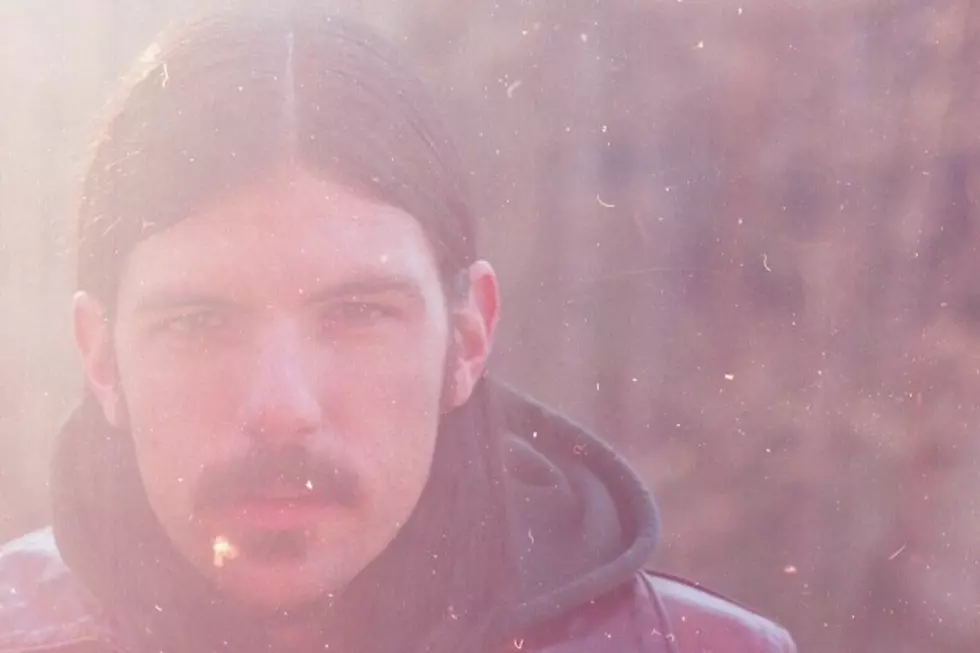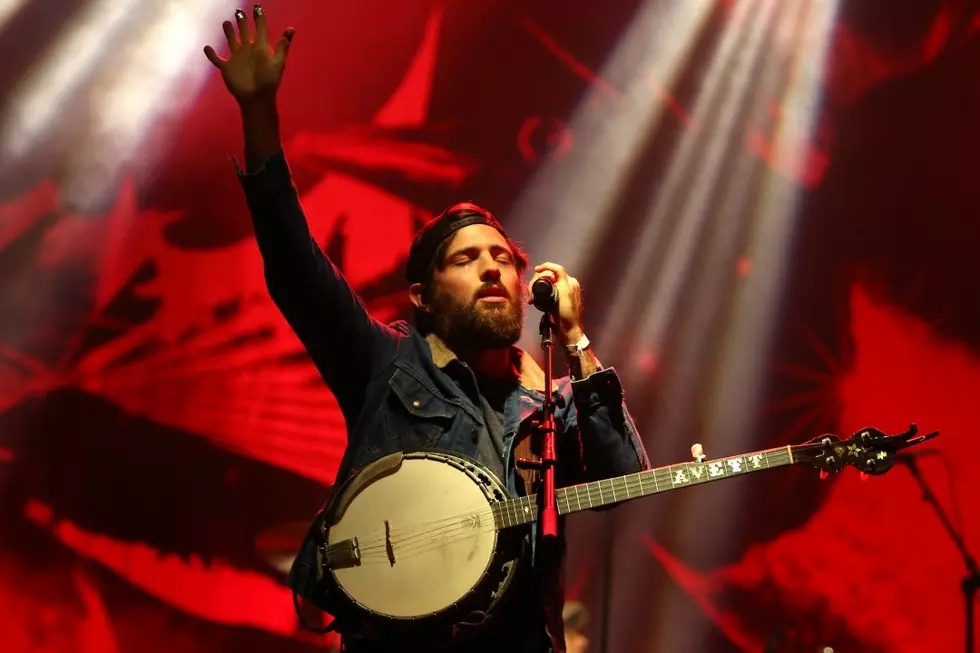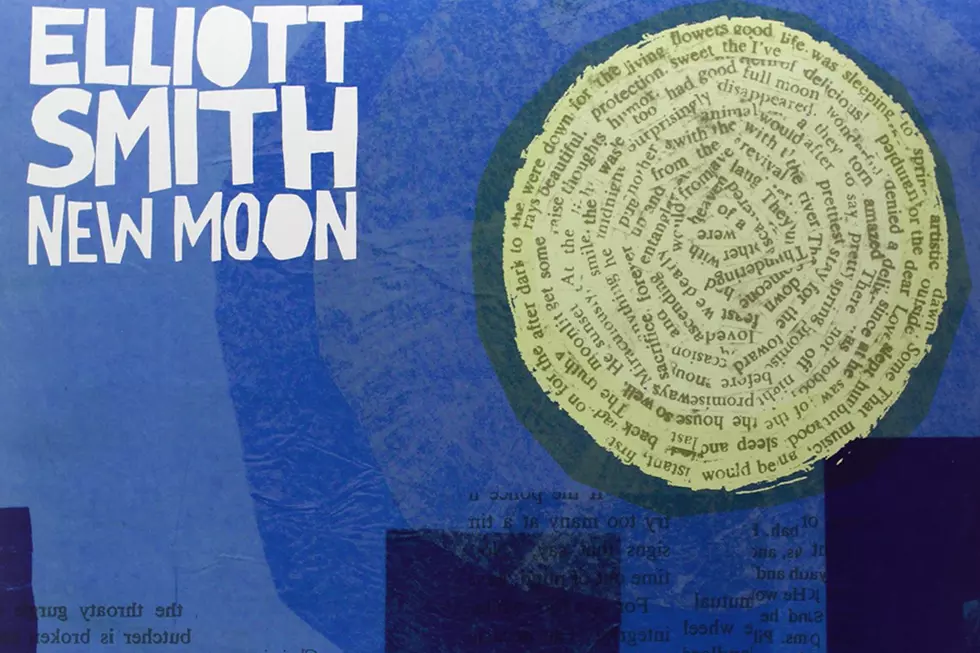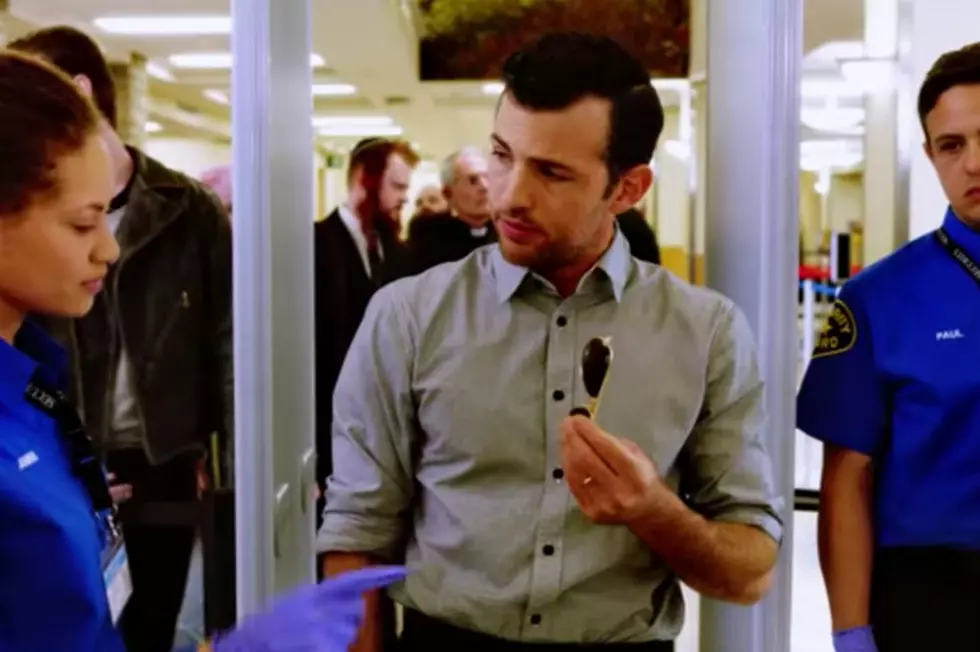
Seth Avett: ‘As Soon as I Heard Elliott Smith, I Knew He’d Be an Important Part of My Life’
Elliott Smith's music has a way of piercing a listener's soul. That might sound clichéd, but for fans of Smith's heralded and folkloric career, it's hard to deny.
Just ask Seth Avett of the Avett Brothers.
"His personality, his fears, his weaknesses, his strengths ... as soon as I heard him, I knew he’d be an important part of my life," Avett tells me about the first time he heard Smith.
That influence has culminated in the release of a tribute album of sorts. Partnering with Jessica Lea Mayfield, the duo put their spins on 12 of Smith's tracks, all perfectly captured on Seth Avett & Jessica Lea Mayfield Sing Elliot Smith.
In anticipation of the new disc, Avett took some time to chat with us about that first time he heard Smith, how he and Mayfield came to the decision to record this album and what it's like covering such an iconic songwriter. Check out our exclusive conversation below:
From the moment I heard about this album, I've been so excited. You and Jessica and Elliott Smith ... it's a fascinating combination, and the result is beautiful. Why is the time right for you to release this record?
Well, to put it plainly, this is when we finished it. [Laughs] There has been no thought put into it in terms of timing, meaning, the reason it’s coming out now is because it took us about four years to do what we felt like was justice to the material. Timing ... it feels very arbitrary to me. Every year that passes, it becomes less and less important when a record comes out. This was just a question of us taking our time and really attempting to do the material justice and dig in and to do it as well as we could. It seemed to make sense to release it now. I hope it does, I hope it does to fans. It's time to share it with the world.
Did it ever cross your mind that you're releasing this album when you're 34 years old, and Smith was 34 when he died?
Wow. I never really thought of that. I mean, I knew he was that old when he passed, and naturally, I’m a little more prepared to hear his music now. I have a little better perspective to understand it, being a man of the same age. But that's just coincidental.
So it took you four years to make sure the album is as good as it can be. How long was this idea on your mind? Have you been wanting to do something like this for awhile?
Not really. It might’ve been rolling around in my subconscious, but this whole thing was sparked by a moment with Jessica backstage in Idaho about four years ago. There was a piano backstage -- she was opening for the Avett Brothers -- and I started playing the chords for “Twilight” and she started singing. It really affected me. At the moment, I didn’t think, “Oh, we have to record an entire record of Jessica singing Elliott Smith songs.” But I did think that this was really, really special. I grabbed my handheld recorder and captured that moment, and the more I listened to it, I thought, "What would it sound like if we did more of these?" It was a very gradual build toward deciding to make the album. It came naturally out of a real moment of inspiration.
How long did you and Jessica know each other before that backstage performance?
I’ve known Jessica since she was about 15 or 16 years old. She opened for us at the Kent Stage in Ohio. I remember seeing her one time before that -- you know, she’s a blue blood. She’s been touring since she was 7 years old, by the time she was 15 or 16, she was a fully professional writer and performer and had really cultivated her voice. So I’ve known her for a long time.
How important has Elliott Smith been to you throughout your life?
I wasn’t aware of his music until I was about 20 years old. A good friend of mine who was at UNC Charlotte, where I attended art school, he turned me on to him with “Say Yes.” It’s a beautiful, beautiful song. It really spoke to me and it all started from there. You know, I started playing guitar at 12 or so, and I didn’t know about Smith until a good deal later. But his take on lyricism and his honesty and his vulnerability, all that stuff is really attractive to me as a listener and as a writer. His personality, his fears, his weaknesses, his strengths -- as soon as I heard him, I knew he’d be an important part of my life, as far as my writing and singing and understanding of melody goes.
If you heard him when you were 20, that was just a few years before his death. Did you ever see him live or meet him?
I never saw him. It’s very similar to my experience with Kurt Cobain. He was gone just a few years after I became aware of him. I’ve studied so much Elliott Smith, I feel like I know him now, though. But I know that's nowhere near the experience of actually seeing him live or knowing him.
When it was first announced, the album was described as a labor of love for you and Jessica. I assume that means you approached it differently than an Avett Brothers record.
You know, if I record a song that I wrote badly, that’s one thing. I’ll catch a little bit of flack from fans. If I record an Elliott Smith song badly, and then give it to the world, I’ll receive quite a lot more flack. And that would be deserved. [Laughs] I was pretty aware throughout the process that this record has a potential of being heard by people who have never heard of me or Jessica and are only giving it a spin because they have a very special relationship with Elliott Smith’s music. That could be distracting, but for the most part, I just tried to get out of the way of the song and sing the ones that felt most natural to me. It was a totally different approach than recording my own material because there is this reference point. There is already this fully formed and developed and realized -- and recorded -- version of each song ... and sometimes there are multiple versions. It was up to me and Jessica to figure out how the songs work in our wheelhouse. How can these songs continue to be heard and understood with a natural voice that is not his voice?
It's important to note that you're not just doing straight-up covers. These songs don't sound like Smith's studio tracks. In particular, "A Fond Farewell" doesn't sound like Smith's version at all, aside from the emotion and the lyrics. You take 12 songs and put your personal touches on them.
A cover works best when you find a solid balance between the meaning of the song and the most honest approach for the current performer. Elliott Smith was an incredibly gifted writer and an incredibly gifted interpreter of emotion, love, pain, addiction. He was a great communicator. But he was a man and he was a person. We have the tendency to romanticize and idolize people we admire and respect and want to be like. I tell you, if I was sitting in a restaurant and looked over and saw Dr. J, I would be like, “Holy god! That’s Dr. J! Can you believe it?!” I wouldn’t think about him like a normal stranger, but the truth is, he has his strengths and weaknesses, too. I think that’s so important to respect those who have made great work, but not to think of their work as untouchable. Elliott Smith was a studio rat, he loved crafting things in the studio and going from instrument to instrument. I feel like that’s a part of his recording, that wonderful relationship between him and the studio. I wanted to continue that enthusiasm, working on these songs in the studio and continuing that vibe.
Smith has a wide body of work -- a lot of albums, B-sides, demos. You picked 12 songs. How did you decide on these tracks?
I can tell you this, Jessica and I both gravitate toward the work he was making at the end of his life. We both have a major love for From a Basement on the Hill. Our early discussions grew out of talks about that album in particular and how deep and complex and sort of bizarre that record is in some ways. It’s mind-blowing that this one fellow with an engineer was making some of these songs like he did. It started there and then we worked our way backwards basically. Each album is a distinct chapter in his life. We wanted to represent as much as we could -- 12 songs is nowhere near enough to represent the full catalog, but you also have to present the ones that touch you the most as an interpreter, as someone who is doing a cover. You need to gravitate toward the ones you really love, with good intentions of representing what he wrote over the years. The love for his music is very deep and I hope that comes across.
What was the response like from your bandmates in the Avett Brothers?
Their support was full on. Tania [Elizabeth] played fiddle, Joe Kwon played cello. That was awesome. I was leading up to finishing the album, and when it actually became a reality and it was wrapping up, I started getting anxiety. What am I going to do? I love recording Elliott Smith songs, but I never actually thought I’d have to share this, you know, it’s like a whole other business when you actually release an album. I let Scott [Avett] hear the tracks and he was like, “What are you going to do as far as a tour goes?” I didn’t even think about it, I didn’t think we’d do any live shows. Scott said we had to play the songs and go out and tour. [Laughs] Really? Do I have to do that? Scott introduced that to me, and it wouldn’t be correct to release the album and not go out and have a moment with the audience where Jessica and I stand onstage and play these songs. The support from the Avett camp has been very solid. I’m sure they’re looking at me, too, and going, “What are you thinking? We have three weeks off and you want to tour?” [Laughs]
Did you ever let Rick Rubin hear the album?
I sent three tracks to him and he just gave me the green light, he gave me the thumbs up. He let me know to run with it, and that’s Rick’s style. His involvement was just, “Go for it, Seth.”
That’s probably all you needed to hear.
That’s it, man. That’s it.
As the album hits the streets and you and Jessica wrap up your tour, what's on the horizon for you and the Avett Brothers?
We’re really digging into it this year. We’re well into the next record. We spent a few weeks out in California a few months ago. Throughout this year, we’re going to attempt to keep the ball rolling. We’re coming off of the winter hiatus and you can count on us getting back to the stage and doing our thing. There is always an eruption of excitement when we get back out there. We’ll probably do a few less shows this year, but each show is going to be bigger and more exciting for us.
Is there a date in mind for the new album?
There isn’t yet, but I feel like it probably won’t be this year. I could be surprised, it really depends on how some of these next sessions go. We’re taking it one step at a time, but we’re well into it. We’ll see.
Seth Avett is on the road with Jessica Lea Mayfield in support of Seth Avett & Jessica Lea Mayfield Sing Elliott Smith. The new album hits store shelves on March 17 via Ramseur Records. You can pre-order your CD or vinyl copy here, and get their full tour itinerary at this location.
Watch Sett Avett Sing Elliott Smith's "Angeles"
More From Diffuser.fm









